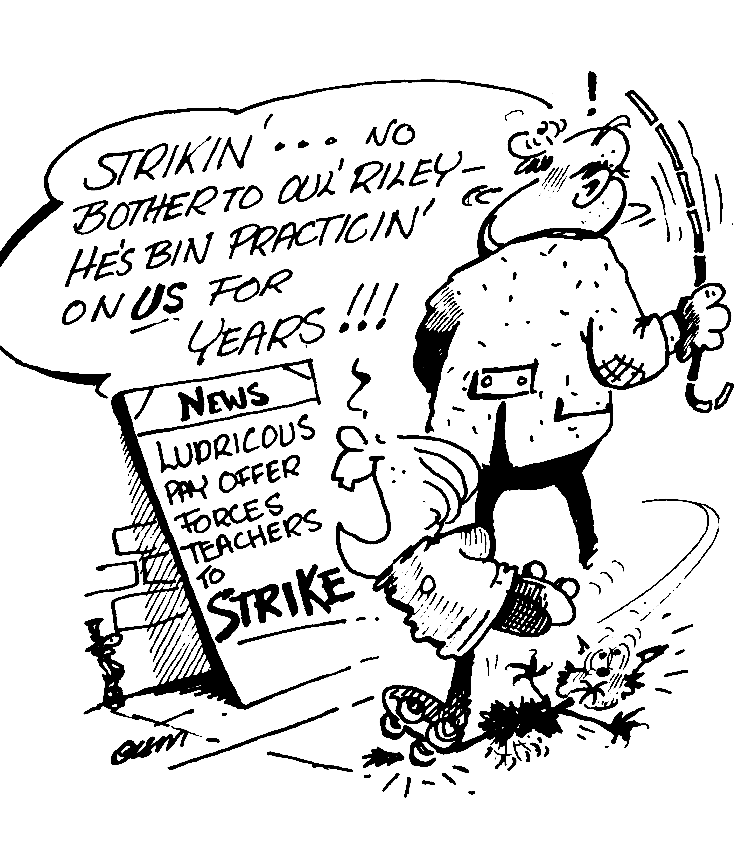WE look at the stories that were making the headlines this week in 1984
Editorial
WE find it difficult to express our feelings about the death of young Mary Travers without resorting to the same overworked clichés of condemnation used by the politicians in our midst.
To trot out these few ritual phrases would, in our view, trivialise the whole tragedy and relegate this young woman's death to the level of a point-scoring exercise used to castigate the IRA and the whole cause of Irish self-determination. That the IRA should be criticised for causing this young teacher's death there is no doubt, and their statement that it was an accident does little to detract from the foolishness of the whole exercise.
Therefore, it is to be regretted that the political leaders of the Republican Movement should not have criticised the action that resulted in her death. To have done so would have added to their stature as caring leaders of a political movement dedicated to the self-determination of the Irish people of which Mary Travers was one.
While understanding their reluctance to do so lest their statements be used to bolster up the British propaganda machine, we feel nevertheless, that the failure to speak out against armed action which they think is wrong could leave them in the vulnerable position of being equated in the minds of people, with the British political leaders who not only turn a blind eye on the actions of their armed forces, but even decorate them as they did with Colonel Wilford who led the Paratroopers on their murder mission on Bloody Sunday.
Dozens of innocent people have been killed by the British army and the RUC over the years, without ever once being criticised by the British politicians (or British church leaders for that matter). But standards that are good enough for an Imperialist power can never be acceptable to those striving for freedom and justice.
Poleglass homes being denied to West Belfast families
THE Poleglass housing estate was built, according to the then British Government to ease the chronic housing shortage in West Belfast, claimed Sinn Féin spokesman, Richard McAuley.
"As a result of Loyalist pressure, agreements were made in the '70s. with the Housing Executive which means that today hundreds, probably thousands, of Nationalist families in West Belfast are being discriminated against and their desperate housing need ignored," he said.
"Housing Executive policy is that tenants will neither be allocated a house or placed on the transfer list if they owe rent or heating arrears and this in spite of the obvious fact that in most cases the Executive are already having these arrears deducted at source."
According to Mr McAuley this policy is supposed to apply across the Six Counties, but in practice it doesn't. Executive tenants in many areas, he said, do transfer and are allocated houses irrespective of arrears.
"Only in Poleglass, because of a sectarian agreement, is this policy rigidly adhered to, resulting in many families in West Belfast being denied houses which their housing need and the Executive points system, ordinarily would entitle them to.
"The points system itself is the other important issue in this situation. It is supposed to determine fairly the housing need of an individual or family and yet because of arrears a family with the required number of points for a house in Poleglass will be denied this.”
TOP TEAM: Tom Laverty and George Young, representing Lavehill Property Sales, Falls Road branch, present a set of jerseys to Gerard Hiskimmon and Jimmy Doyle, captain of Kilwee FC, Twinbrook
Electricity debt collectors applying pressure
ADVICE centres throughout Belfast have been besieged this week by people seeking help as the Electricity Service launched a new "offensive" against consumers who have fallen into debt.
Ballymurphy, Lenadoon, Twinbrook, Oldpark and Falls are only some of the areas where a significant increase in NIES threats to cut off the electricity supply to householders have been reported.
Ciarán de Baroid of the Upper Springfield Resource Centre says there has been a "sudden stepping up" of the activity of NIES debt collectors.
"Nine people have come to our Advice Centre this week with letters which give them seven days to clear their debts or have their electricity cut off. We reckon this number would represent about 10 per cent of the total number of people in this district who received warnings of this type."
Community workers urge people to guard against any attempts to cut their electricity off. The Belfast Law Centre has emphasised the following points for consumers:
1. Everyone should be aware that on no occasion can electricity service employees enter a dwelling without the householder inviting them in;
2. Once inside they have no right to examine pension or insurance books. (If they wish to ascertain a person's circumstances with a view to recovering arrears, they must do so through the Central Benefits Branch.)
3. The maximum amount of arrears that the NIES can deduct at source from a person receiving Supplementary Benefits and who is in arrears is £1.20 per week. They can, however, also deduct money each week from supplementary payments to cover weekly consumption.
4. Anyone who is in arrears can contact the NIES to make a voluntary agreement with them to repay their debts.







